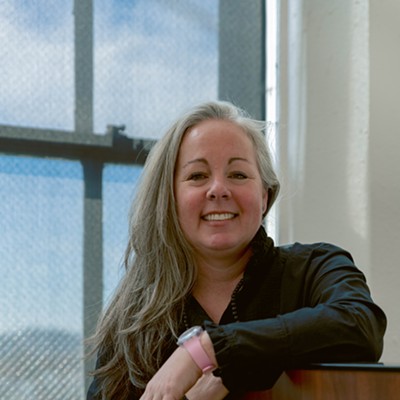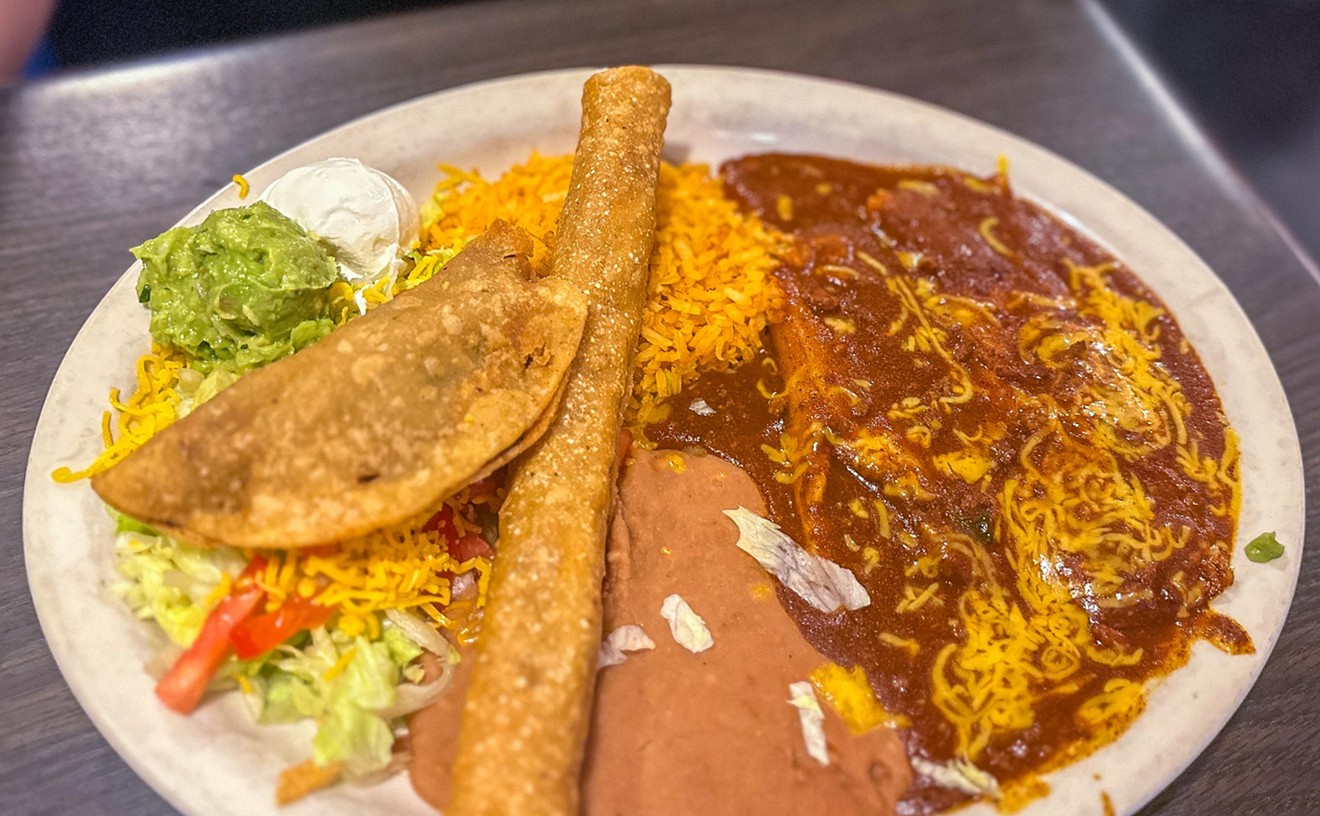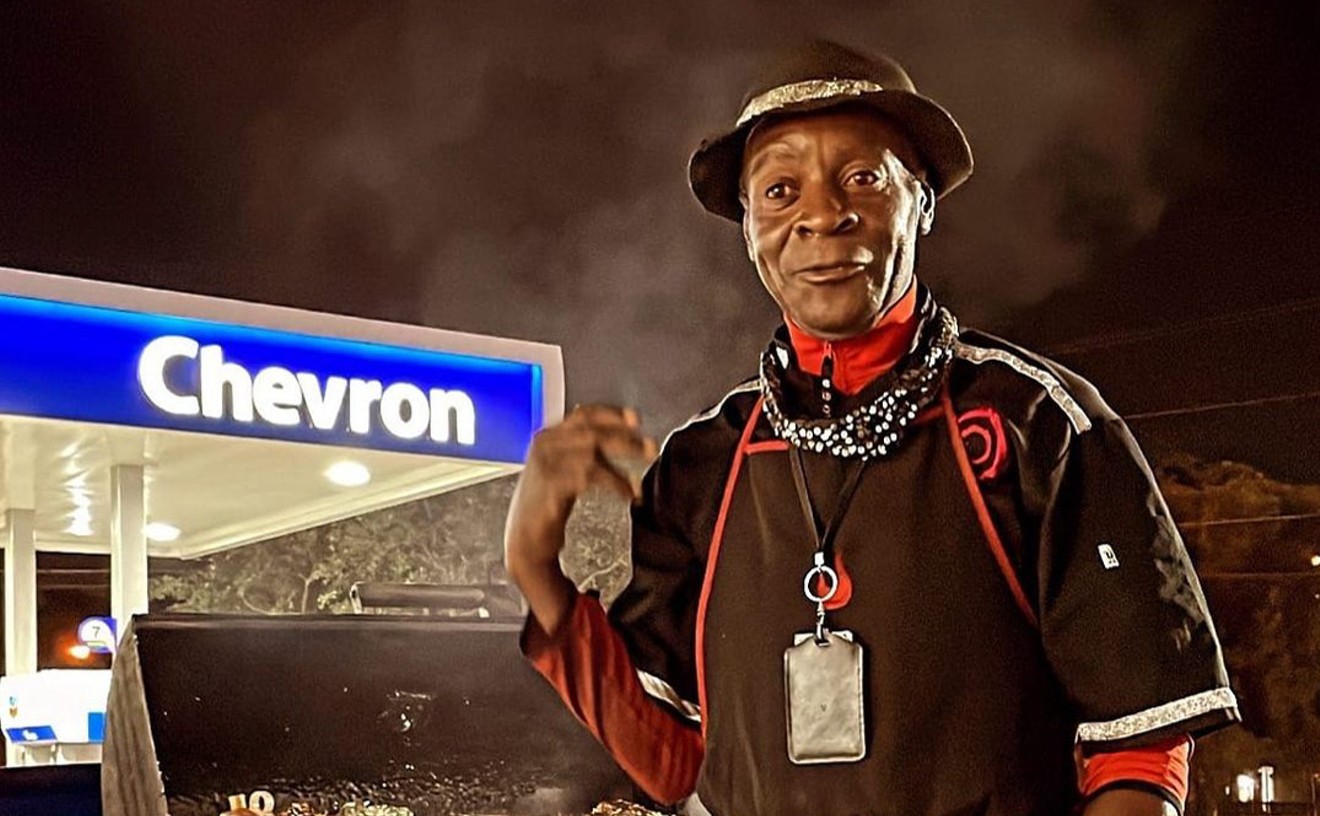In Part 1 of our interview with Chef Brad Albers of Eddie V's, we talked about his time in a Swiss kitchen. In Part 2 he discussed the social-driven food scene in Dallas. Today we'll learn about his passion for hunting and political refugees from Burma who are learning a little Spanish back in his kitchen.
What do you do when you're not cooking? I love to hunt and I also have labs that hunt -- they're really my passion. My youngest just became a master national hunt champion this year.
When did you start hunting? I grew up in Plano back when there was nothing out there, not even a grocery store. But, my grandparents had a farm in Glen Rose and I would go out there almost every weekend. I had the advantage of spending a lot of time in the country when I was growing up.
Did your grandfather teach you to hunt? No, actually, my grandmother was a little old lady that loved to fish and she would also trap in the winter-time -- that's how she would buy her Christmas presents. She'd trap foxes, raccoons and stuff. Grandpa was always busy working. So it was mostly my grandma. I got my first shotgun (20-gauge pump) when I was 8 years old. I would walk around that farm and shoot anything that moved. I was a grown man before I even knew I needed a license.
When did you get your first bird dog? After traveling around for culinary school and work, I came back here and sort of wanted to reconnect with things, so I started fishing and hunting again. Then, I went dove hunting with some friends one time, just one time, and I was hooked. I think I bought a pup the very next day.
What was your first job in a restaurant? I washed dishes at Chuck's Old Fashioned Hamburgers. I quickly graduated to fry cook. It was good times. I also worked a lot for my dad who owned a motor parts store in Oak Cliff. It was basically just dirty, crumby work, but I learned early on from that experience that I didn't like grease under my fingernails -- which is exactly why my dad made me work there.
How do you train new chefs in your kitchen? First, I ask them why the want to cook.
What's the right answer to that? There are lots. Everybody has a different reason.
Do you enjoy training new chefs? In my former life I recruited young chefs for six-month stages at Patrizio's and Café Pacific. And I enjoyed doing that. We would get some great ones, and some turkeys. Here we're looking for eagles! We don't need any turkeys.
What's the most important factor for a young chef to be successful in a restaurant kitchen? Work ethic. Don't give up. Don't become a cement mixer, somebody who is just there to turn the cement. That's when work ethic comes into play. I want them to put some heart into it.
Can you inspire that in people? I like to think so.
How? I try to by example. Every plate has to go by me before it reaches the customer. So, if it's not right it's coming back to get redone. And they either get tired of redoing it, and do it right, or they go somewhere else.
Were you a hard worker at your first job as a chef in Islisberg, Switzerland? I had to be. School was very difficult for me. I had to work really hard just to be an okay student. So, I knew I had to make being a chef work.
Tell me about the two news guys washing dishes in the kitchen. I just hired two cats from Burma. They're political refugees who were sent over here through an international aid group. They are really grateful to be here. You know, it's terrible in Burma right now. They'd only been in the states four or five weeks when I hired them and they don't speak any English.
How did you get involved with hiring them? A while back I met a woman who told me about her organization where they help find jobs for political refugees. And it just sort of stuck in the back of my head. So, we got to a place where we needed a couple new people back in the kitchen, so I called her and they all showed up the very next day with translators. We talked for a while and hired them on.
How have they acclimated? Well, I didn't really know how they would get along with everyone in the kitchen, I was honestly a little worried. A lot of my other guys back there speak Spanish and I just wasn't sure how it would work out. But, turns out they're awesome everybody love the Burmese! And now they actually speak more Spanish than English. They work so hard -- they get here early and stay late. They're glad to be here even though they're just washing dishes. For these cats this is like a dream come true. And we love having them here.











